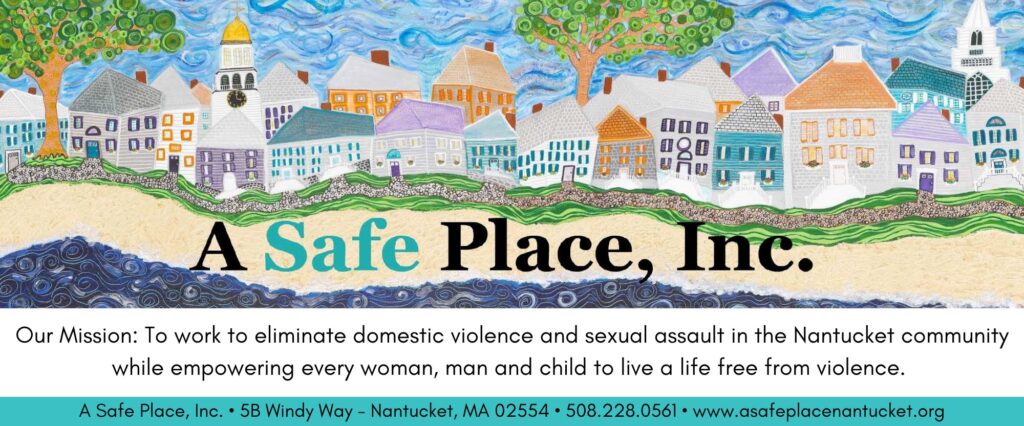
Human Trafficking Awareness
Human trafficking exists in every country. Within the Unites States, it is nationwide.
It is a public health issue that impacts individuals, families, and communities.
Victims of human trafficking can be of any age, race, gender, sexual orientation, religion, nationality, or education level and may come from any socioeconomic group. Traffickers tend to target at risk individuals who have experienced or been exposed to other forms of abuse and or individuals who do not have stable support within their life.
Human trafficking is often a hidden crime. Many victims may be afraid to come forward and get help.
If you are in need of free and confidential support as a victim of human trafficking, please know there are resources available to you. You are never alone.
Free & Confidential Help is Available
Local Resources (Nantucket Island, Massachusetts)
Please Note: If you are in immediate danger and need emergency help, please call 911.
A Safe Place
5B Windy Way
Nantucket, MA 02554
(508)228.0561 (office)
(508)228.2111 (24-hour hotline)
www.asafeplacenantucket.org
Nantucket’s domestic violence and sexual assault advocacy and counseling center providing 100% free and confidential supportive services to survivors within the Nantucket community.
Advocates are available in English, Spanish, and Portuguese by appointment or via walk in services. A Safe Place staffs a 24-hour confidential hotline and a weekday online chat feature that is available Monday-Friday from 10:00 AM – 4:00 PM at www.asafeplacenantucket.org.
Our Mission: To work to eliminate domestic violence and sexual assault in the Nantucket community while empowering every woman, man and child to live a life free from violence.
Services Include:
•24-hour hotline at 508.228.2111
•Online Chat at www.asafeplacenantucket.org
•Supportive Counseling
•Trauma Therapy
•Medical Accompaniment
•Court Advocacy
•Legal Service Aid
•Immigration Support
•Housing Search Assistance
•Supervised Visitation Services
•Youth Sports & Social Skills Groups
•Prevention Education Programs (Youth & Adult)
Cape & Islands District Attorney’s Office Human Trafficking Tip-Line
774.822.0632
District Attorney Robert J. Galibois
3231 Main Street
Barnstable, MA 02630
508.362.8113
www.capeandislandsda.gov
National Resources (United States)
National Human Trafficking Hotline
1.888.373.7888
www.humantraffickinghotline.org
Blue Campaign
(United States Department of Homeland Security)
www.dhs.gov/blue-campaign
U.S. Department of Justice
www.justice.gov/humantrafficking
Key Indicators of Human Trafficking
(Information provided by the Unites States Department of Homeland Security)
• Does the person appear disconnected from family, friends, community organizations, or houses of worship?
• Has a child stopped attending school?
• Has the person had a sudden or dramatic change in behavior?
• Is a juvenile engaged in commercial sex acts?
• Is the person disoriented, confused, or showing signs of mental or physical abuse?
• Does the person have bruises in various stages of healing?
• Is the person fearful, timid, or submissive?
• Does the person show signs of having been denied food, water, sleep, or medical care?
• Is the person often in the company of someone to whom he or she defers? (Someone who seems to be in control.)
• Does the person appear to be coached on what to say?
• Is the person living in unsuitable conditions?
• Does the person lack personal possessions and appear to not have a stable living situation?
• Does the person have freedom of movement? Can they freely leave where they live? Are there unreasonable security measures?

